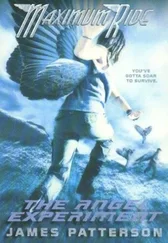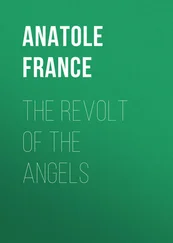Yukio Mishima - The Decay Of The Angel
Здесь есть возможность читать онлайн «Yukio Mishima - The Decay Of The Angel» весь текст электронной книги совершенно бесплатно (целиком полную версию без сокращений). В некоторых случаях можно слушать аудио, скачать через торрент в формате fb2 и присутствует краткое содержание. Год выпуска: 2010, Издательство: CCV Digital, Жанр: Старинная литература, на английском языке. Описание произведения, (предисловие) а так же отзывы посетителей доступны на портале библиотеки ЛибКат.
- Название:The Decay Of The Angel
- Автор:
- Издательство:CCV Digital
- Жанр:
- Год:2010
- ISBN:нет данных
- Рейтинг книги:5 / 5. Голосов: 1
-
Избранное:Добавить в избранное
- Отзывы:
-
Ваша оценка:
- 100
- 1
- 2
- 3
- 4
- 5
The Decay Of The Angel: краткое содержание, описание и аннотация
Предлагаем к чтению аннотацию, описание, краткое содержание или предисловие (зависит от того, что написал сам автор книги «The Decay Of The Angel»). Если вы не нашли необходимую информацию о книге — напишите в комментариях, мы постараемся отыскать её.
The Decay Of The Angel — читать онлайн бесплатно полную книгу (весь текст) целиком
Ниже представлен текст книги, разбитый по страницам. Система сохранения места последней прочитанной страницы, позволяет с удобством читать онлайн бесплатно книгу «The Decay Of The Angel», без необходимости каждый раз заново искать на чём Вы остановились. Поставьте закладку, и сможете в любой момент перейти на страницу, на которой закончили чтение.
Интервал:
Закладка:
The spread and the falling away of foam. Little patches of foam trailing off to sea like lines of water bugs.
Foam trailing off over the sand like sweat from the back of an athlete at the end of his exertions.
What delicate changes passed over the white monolith of the sea as it came in upon the shore and broke. The myriad confusion of thin waves and the fine partings of the foam became in desperation an infinity of lines spewed out over the sea as from silkworms. What a subtle evil, overcoming by sheer force even as it took into itself this delicate white.
Four fifteen.
The sky in its upper reaches was blue. It was an affected, pompous sort of blue. He had seen a similar blue in the library, in a collection from the School of Fontainebleau. Composed all lyrically with just an apology for clouds, it was not a summer sky at all. It was laid over with a saccharine hypocrisy.
The lens had left the shore, and was turned on the sky, the horizon, the sea.
It caught a sheet of spray that seemed to hurl itself into the very heavens. What could it be up to, this single point of foam flinging itself above the rest? Why had it been elected?
Nature was a cycle, the whole to the fragment, the fragment back to the whole. Compared to the fleeting cleanness of the fragment, the whole was dark and sullen.
And was evil a matter of the whole?
Or of the fragment?
Four forty-five. Not a ship in sight.
The beach was lonely. There were no swimmers, and only two or three anglers. The sea without ships was worlds away from dedication and service. Suruga Bay lay utterly sober, without love and without joy. There had to be ships sliding in and out, cutting razor lines of white through this sluggish, flawless perfection. A ship was a weapon of cool contempt against the perfection, gliding over the thin taut skin of the sea and wounding it. Yet going no deeper than the surface.
Five o’clock.
The white of the waves become for an instant the color of a yellow rose, to tell that evening approached.
He saw two black tankers, large and small, making for sea to the left. The fifteen-hundred-ton Okitama-maru , which had left Shimizu at four twenty, and the three-hundred-ton Nisshō-maru , at four twenty-three.
They were like mirages in the mist. Not even their wakes were distinct.
He lowered the lens to the shore.
As they took on the color of evening, the waves were stern and hard. The light had more and more the color of evil, the bellies of the waves were uglier.
Yes. The waves as they broke were a manifest vision of death. It seemed to him that they had to be. They were mouths agape at the moment of death.
Gasping in agony, they trailed numberless threads of saliva. Earth purple in the twilight became a livid mouth.
Into the gaping mouth of the sea plunged death. Showing death nakedly time and time again, the sea was like a constabulary. It swiftly disposed of the bodies, hiding them from the public gaze.
Tōru’s telescope caught something it should not have.
He suddenly felt that a different world was being dragged forth from those gaping jaws. Since he was not one to see phantasms, there could be no doubt that it existed. But he did not know what it was. Perhaps it was a pattern drawn by micro-organisms in the sea. A different world was revealed in the light flashing from the dark depths, and he knew it was a place he had seen. Perhaps it had something to do with immeasurably distant memories. If there was such a thing as a previous life, then perhaps this was it. And what would its relation be to the world Tōru was constantly looking for, a step beyond the bright horizon? If it was a dance of seaweed caught in the belly of the breaking waves, then perhaps the world pictured in that instant was a miniature of the mucous pink and purple creases and cavities of the nauseous depths. But there had been rays and flashes—from a sea run through by lightning? Such a thing was not probable in this tranquil twilight sea. There was nothing demanding that that world and this world be contemporary. Was the world he had had a glimpse of in a different time? Was it of a time different from that measured by his watch?
He shook his head. As he fled the unpleasant sight, the telescope too became unpleasant. He moved to the fifteen-power binoculars in another corner of the room. He followed the great hull of the ship leaving the harbor.
It was the Yamataka-maru of the Y.S. Line, 9,183 tons, bound for Yokohama.
“A Yamashita ship has just left, bound in your direction. Yamataka, Yamataka . It’s now seventeen twenty.”
Having telephoned his message to the main office in Yokohama, he returned to the binoculars and once more followed the Yamataka-maru , its masts now disappearing into the mist.
The mark was a single black line near the top of a persimmon-colored ground. Y.S. LINE in large black letters on the hull. White bridge, red cranes. The ship was in desperate flight from the circle in the telescope. Sending white lines from its prow, it moved out to sea.
It was gone.
There were bonfires in what had been strawberry patches below the window.
The plastic shelters which had until about the end of the summer rains covered the whole expanse had all been taken away. The strawberry season was past. Cuttings for forced cultivation were off at the fifth station of Fuji welcoming a man-made winter. They would return late in October, to be ready for the Christmas market.
People were working among the foundations and on black paddies from which even the foundations had been removed.
Tōru went to get dinner.
He had a simple dinner at his desk. It was nightfall.
Five forty.
A half moon came from the clouds, high in the southern sky. Another moment and the half moon, like an ivory comb dropped down into the sky, was indistinguishable from a cloud.
The pines along the sea were black. It was already dark enough to make out the red taillights of the anglers’ cars parked on the beach.
Children were swarming over the road through the strawberry patches. Strange children of the evening. Weird children, coming out into the dusk from nowhere, cavorting insanely through the fields.
The bonfires sent up tongues of flame beyond.
Five fifty.
Tōru glanced up. He caught a ship mark quite indistinguishable to the ordinary naked eye, and reached for the telephone. Such was his confidence that his hand went for the telephone even before he had verified the mark.
The ship’s agent answered.
“Hello? This is Teikoku Signal. The Daichū . I’ve just sighted it.”
It was like a smudge drawn by a dirty finger across faint pink on the southwest horizon. As if examining a fingerprint on the glass, he picked it out and identified it.
The register told him that the Daichū-maru , 3,850 tons, was a lauan transport, one hundred meters long, speed 12.4 knots. The only ships capable of more than twenty knots were international freighters. Lumber ships were slower.
He felt particularly close to the Daichū-maru. It had been launched the spring before from the Kanazashi Shipyards here in Shimizu.
Six.
In the pink offing, the dim form of the Daichū-maru was edging past the Okitama-maru , leaving the harbor. It was a strange moment when an image oozes from a dream into everyday life, an actuality from an abstraction—a poem becomes corporate, a fantasy an object. If something meaningless yet ominous is through some process taken into the heart, there is born in the heart an urgency to give it shape, and so a something comes to exist. Perhaps the Daichū-maru was born of Tōru’s heart. An image indistinct as the sweep of a brush had become a gigantic hull of some four thousand tons. And the same thing was forever happening, somewhere in the world.
Читать дальшеИнтервал:
Закладка:
Похожие книги на «The Decay Of The Angel»
Представляем Вашему вниманию похожие книги на «The Decay Of The Angel» списком для выбора. Мы отобрали схожую по названию и смыслу литературу в надежде предоставить читателям больше вариантов отыскать новые, интересные, ещё непрочитанные произведения.
Обсуждение, отзывы о книге «The Decay Of The Angel» и просто собственные мнения читателей. Оставьте ваши комментарии, напишите, что Вы думаете о произведении, его смысле или главных героях. Укажите что конкретно понравилось, а что нет, и почему Вы так считаете.











